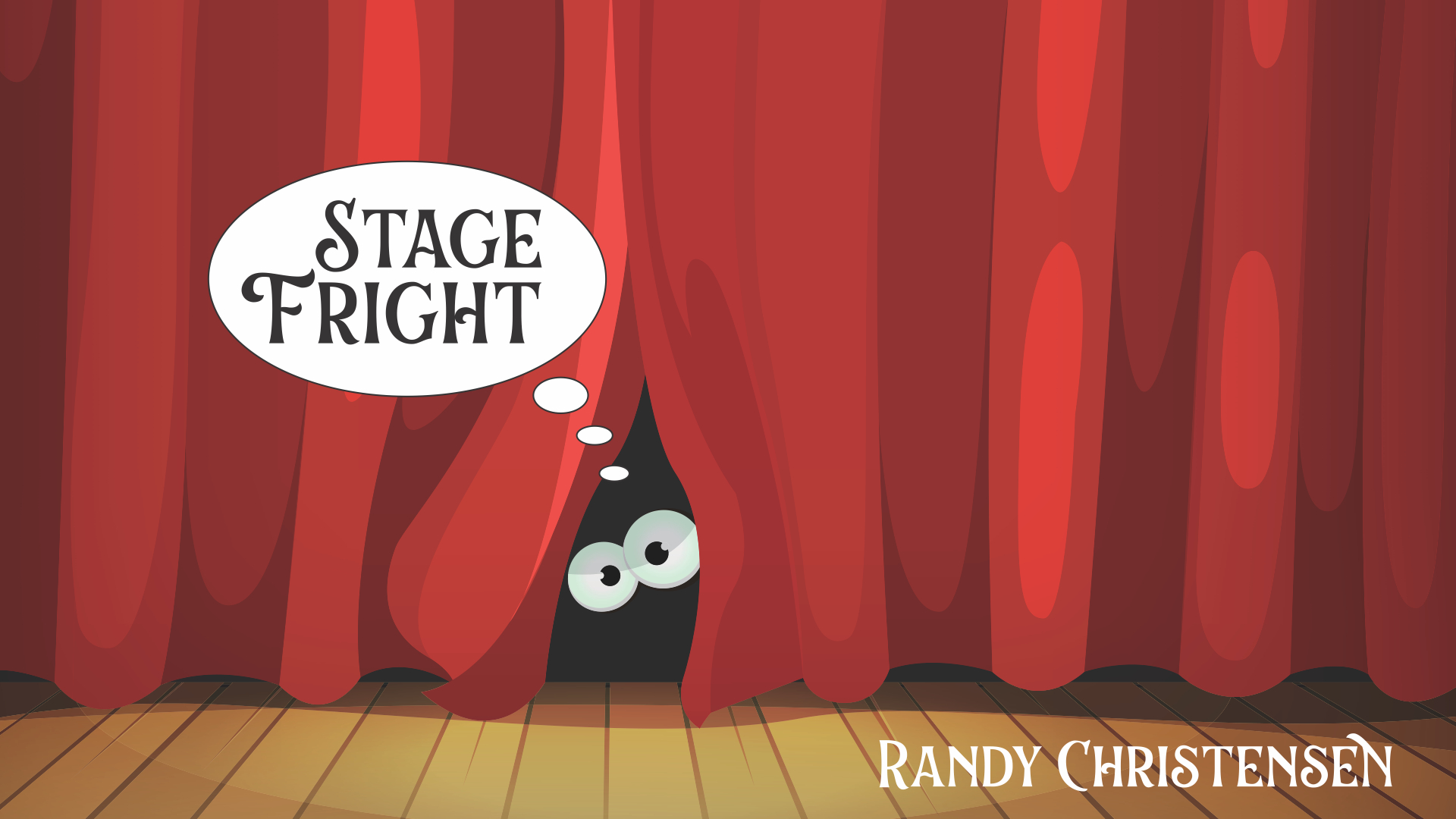 Randy Christensen
Randy Christensen
Recently I was asked this question by a young gal who is interested in stage performance. “How do you get over stage fright?” oooo…tough question. Here’s some of what I shared with this performer.
- Be prepared. I try to practice enough that I know that I’m not going to mess up just because I’m not prepared. When I feel like I can do what I have planned, rather than walking on stage just HOPING that I can get lucky and do what is planned, then it helps me to walk on stage more confidently.
- I remember that feeling “the nerves” is not just being nervous. It means that I’m getting some “extra energy” so I can do my best. That extra adrenaline is going to help me do what I need to do. The personal challenge is to control it, and not let it mess me up. I keep in mind that the extra energy burst I’m sensing can actually be helpful.
- It may be better to think of this as “getting butterflies,” or “feeling a bit anxious,” rather than talking about “stage fright.” These feelings aren’t necessarily about a paralyzing fear. Once again, it’s about the extra adrenaline that one feels when stepping into a presentation that is important to the presenter.
- Even the most professional performers and actors still experience this pre-show concern even after doing this for years and years. It’s reported that Henry Fonda, even in his later years, before walking on stage on Broadway would throw-up before a show. So, even the best professionals still feel that sense of “nerves.” The thing to glean from this is simply, it didn’t stop him!
If a person doesn’t feel that extra adrenaline, that may mean that the person does not CARE enough about what they are doing. If a person is TOTALLY relaxed, that means that they probably are not going to do their best for their audience. Performers SHOULD feel that extra energy before walking onto stage.
- Most have found that once on stage, the nervousness dissipates. It’s the “before time” when a person feels it rather than in the middle of it.
- Most also will share that the more experience one has, the less debilitating this feeling becomes. The more one performs, the more confident one becomes over time.
Janet Tucker recently shared with me about a discussion she had with her son, Stephen, when he was a Senior in college. He was home one weekend helping her do the dishes in the kitchen. He said “Thanks, Mom” and when she asked “For what?” he said “Thanks for making me a clown. The #1 fear of people in America is being onstage talking to a group but my years as a clown have given me a stage presence so I can do well on speeches and talking in front of others.” By doing repeated clown presentations Stephen had learned to get over any nervousness.
- When it comes to clown ministry presentations, I try to always remember that the most important person I’m doing this performance for is Jesus. I keep in mind that He loves me just because I’m up there doing my best for Him. Knowing that, I can relax some, and just give it my best shot, knowing that it’s going to make Him smile.
In closing, the short answer is that everyone DOES get nervous some. The key is to not let it make you FREEZE or make you mess up.
So, if you are feeling nervous, pause, breathe, meditate and/or pray before walking out there on stage.
Realize that your audience is FOR you. They want to have fun and so do you. You are a team creating a positive experience for everyone there, including you!
